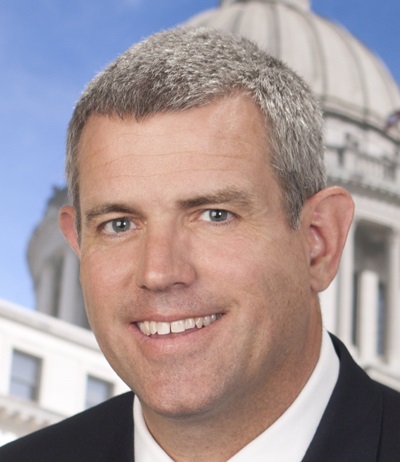By Bob Allen
A revised “Mississippi Religious Freedom Restoration Act” held up over concerns that it could legitimize discrimination against gays has passed the state legislature and is on its way to the governor.
Both houses voted April 1 in favor of a bill to prevent the government from “substantially” burdening a person’s free exercise of religion without “compelling” justification. In cases where a generally applicable law happens to infringe on a religious freedom, it must be by the “least restrictive means” in order to achieve the interests of the state.
The House voted 79-43 and the Senate 37-14 in favor of compromise language hammered out in committee after an earlier version stalled in the House.
Language in the original version defined religious liberty as including “the ability to act or the refusal to act in a manner that is substantially motivated by one’s sincerely held religious belief.” That drew comparisons to an Arizona law vetoed by Gov. Jan Brewer that would have allowed businesses asserting their religious beliefs the right to deny service to gay and lesbian customers.
When Republican lawmakers started backing away from the bill over business concerns, Jimmy Porter, the executive director of the Christian Action Commission — the lobbying arm of the Mississippi Baptist Convention — issued an email warning that should the measure fail, “The Christian Action Commission will work diligently to ensure the blame will be laid at the feet of these 20 alleged Republicans.”
The current version, amended in a conference committee from both houses, resembles the federal Religious Freedom Restoration Act passed by Congress and signed by President Clinton in 1993.
The bipartisan bill, which aimed to restore religious protections stripped by a Supreme Court decision in 1990, is currently before the U.S. Supreme Court. The Baptist owners of Hobby Lobby say it allows them to deny coverage of birth control in employee insurance policies mandated by Obamacare.
The Baptist Joint Committee for Religious Liberty isn’t taking sides in the Hobby Lobby case but says RFRA should not be overturned. BJC General Counsel Hollyn Hollman said in the March 2014 Report from the Capital that the debate over RFRA and similar laws in 18 states has become polarized recently in the particular context of gay marriage.
“RFRAs are designed to provide a uniform standard for all claims, and it should be expected that asserted claims will reflect wide religious diversity and encompass unpopular beliefs,” she wrote. “It seems, however, that claims that threaten to harm the rights of others have tainted the popularity and public understanding of religious freedom.”
“For most people, it is difficult to see how one’s religious beliefs can legally justify discrimination against a customer based upon some minority status,” Hollman wrote. “The idea that such a claim could be made, regardless of the specific context (related to weddings or other religious services) was enough to taint the Arizona legislation. Likewise, the idea that an employer’s religious belief could determine the cost or access to health care benefits of employees who do not share their beliefs is troublesome.”
 Albert Mohler, president of Southern Baptist Theological Seminary in Louisville, Ky., said in an April 3 podcast that the very fact that the Mississippi bill — crafted with leadership from Speaker of the House Philip Gunn, a member of Southern Seminary’s board of trustees — is controversial “tells you that something serious is afoot and that the terrain on the larger issue of religious liberty is genuinely changing.”
Albert Mohler, president of Southern Baptist Theological Seminary in Louisville, Ky., said in an April 3 podcast that the very fact that the Mississippi bill — crafted with leadership from Speaker of the House Philip Gunn, a member of Southern Seminary’s board of trustees — is controversial “tells you that something serious is afoot and that the terrain on the larger issue of religious liberty is genuinely changing.”
“Those who are concerned about the perpetuation and protection of religious liberty have to see what has happened in Mississippi as a very positive and healthy development and the controversy about it as very alarming,” Mohler said.
Another provision of the bill adds the words “In God We Trust” to the state flag, a priority of Republican Gov. Phil Bryant, who indicated early on he likely would sign the measure.
Previous stories:
Faith leaders oppose Miss. religion bill
Baptist, Methodist pastors in Miss. oppose discrimination based on religious freedom
